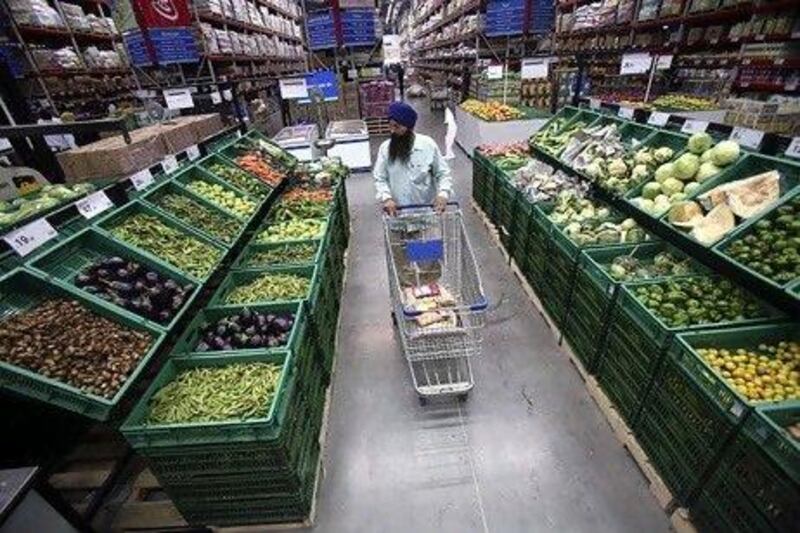MUMBAI // The Indian government is considering liberalising its stringent rules on foreign direct investment in the country's US$28 billion organised retail trade.
Such an opening up has been a long-standing goal of foreign supermarket giants eager to penetrate this burgeoning market of a billion-plus consumers.
India's retail sector is heavily regulated, with strict limits on investment from abroad. Foreign investors are allowed to own up to 51 per cent of stores that sell only one brand of products.
Retailers such as Walmart, Carrefour and Marks & Spencer, which sell multiple brands, are allowed to operate in India only through franchise tie-ups with local partners.
The government is considering allowing 51 per cent foreign ownership of multi-brand retailers, a policy change that would enable foreign retailers to woo Indian consumers directly.
The government has previously been sternly opposed to deregulation, despite intense lobbying by foreign retailers, as it feared this could damage the business of the millions of traditional family-owned stores, known colloquially as kiranas, that dominate the sector and employ 40 million people.
But a report on inflation presented last week by a government-appointed panel initiated a change of heart.
"We are taking a clear position on foreign direct investment in multi-brand retail," said Kaushik Basu, India's chief economic adviser, who led the panel.
"[Our] research shows that more jobs will be created if the retail sector is opened up than those that will be lost as a result of it."
With its economy growing strongly, India is experiencing a retail revolution. The sector is buoyed by the rising affluence and expansion of India's 300 million-strong middle class.
According to the UK's Business Monitor International, total retail sales in India will grow from $395.96bn (Dh1.45 trillion) this year to $785.12bn by 2015. The Boston Consulting Group (BCG) estimates that the organised retail sector has the potential to grow to $260bn by 2020, but there is a pressing need for cash flow of $60bn over the next decade to achieve that target. That can happen only if India relaxes its tough rules on investment from abroad, experts say.
"This is a very capital-intensive business," Rajan Bharti Mittal, the managing director of the retail gian
"We should allow investors to come in and create a viable ecosystem for the retail business."
Inflation, decried as a tax on the poor, stood at 8.66 per cent in April, higher than the central bank's projected level of 5 per cent. In recent months, rising prices, especially for food, have sparked angry street protests - and inflation has caused several governments to be voted out of power in the past.
Rising food prices are squeezing the budgets of hundreds of millions of households, which typically spend between 30 per cent and 60 per cent of their monthly earnings on groceries.
But research shows that organised retail chains are less prone to inflationary pressures than kiranas.
A study conducted in December by BCG in four Indian cities found that organised retail stores offer consumers monthly savings of more than 6 per cent on food and groceries in comparison with the kiranas.
"These [savings] can be used to pay one month's electricity bill or a premium for a systematic investment plan to secure one child's future," BCG said in its study.
A 2007 study by the Mumbai credit ratings agency Crisil reported that about 1 trillion rupees (Dh82.14bn) worth of food was being lost annually to wastage and poor warehousing.
Organised retail, it said, could bolster the food supply chain, increase farm incomes and reduce the price of food.





